-
 Bitcoin
Bitcoin $83,818.1285
1.19% -
 Ethereum
Ethereum $1,813.8273
1.27% -
 Tether USDt
Tether USDt $0.9997
-0.01% -
 XRP
XRP $2.1250
3.48% -
 BNB
BNB $596.7493
0.64% -
 Solana
Solana $121.2008
5.27% -
 USDC
USDC $1.0000
0.01% -
 Dogecoin
Dogecoin $0.1698
4.33% -
 Cardano
Cardano $0.6591
1.51% -
 TRON
TRON $0.2375
-0.84% -
 UNUS SED LEO
UNUS SED LEO $9.1951
-4.76% -
 Chainlink
Chainlink $12.8892
1.68% -
 Toncoin
Toncoin $3.3131
-5.81% -
 Stellar
Stellar $0.2583
-0.21% -
 Avalanche
Avalanche $18.1653
0.47% -
 Sui
Sui $2.2414
3.02% -
 Shiba Inu
Shiba Inu $0.0...01231
1.76% -
 Hedera
Hedera $0.1635
1.61% -
 Litecoin
Litecoin $84.7103
1.75% -
 Polkadot
Polkadot $4.0184
0.11% -
 MANTRA
MANTRA $6.2827
-1.26% -
 Bitcoin Cash
Bitcoin Cash $300.9919
-0.81% -
 Bitget Token
Bitget Token $4.5306
1.27% -
 Dai
Dai $1.0000
-0.01% -
 Ethena USDe
Ethena USDe $0.9991
-0.04% -
 Monero
Monero $217.9472
1.03% -
 Hyperliquid
Hyperliquid $11.9562
2.18% -
 Uniswap
Uniswap $5.8865
0.68% -
 Pepe
Pepe $0.0...07249
7.38% -
 OKB
OKB $50.7987
8.70%
How can ordinary people make money through NFT virtual land transactions?
Ordinary people can profit from NFT virtual land by buying, selling, and developing digital plots on platforms like Decentraland and The Sandbox using Ethereum.
Apr 04, 2025 at 12:07 am
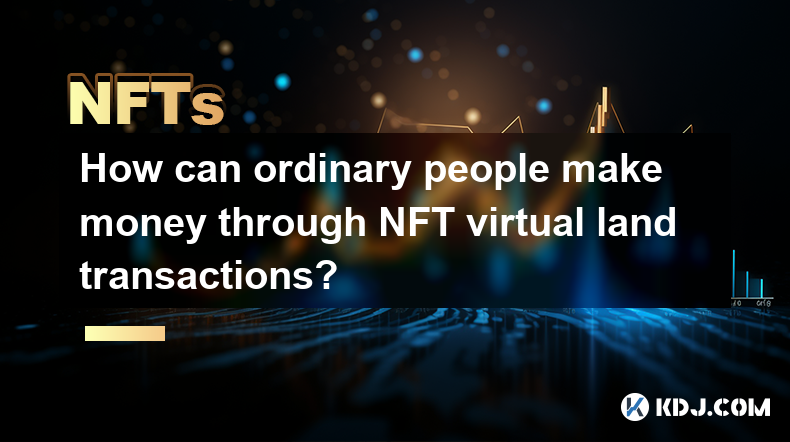
In the world of cryptocurrency, Non-Fungible Tokens (NFTs) have opened up new avenues for investment and profit, particularly in the realm of virtual land. Ordinary people can participate in this lucrative market by understanding and leveraging the unique aspects of NFT virtual land transactions. This article explores how individuals can make money through buying, selling, and developing virtual land within NFT ecosystems.
Understanding NFT Virtual Land
NFT virtual land refers to digital plots of land within various metaverse platforms, such as Decentraland and The Sandbox. These plots are represented as NFTs, meaning they are unique digital assets that cannot be replicated or divided. Owning a piece of virtual land grants the holder rights to use, develop, and monetize the land within the platform's rules.
To get started, individuals need to understand the basics of blockchain technology and how NFTs function within it. Platforms like Decentraland and The Sandbox operate on the Ethereum blockchain, requiring users to have an Ethereum-compatible wallet like MetaMask. Once set up, users can purchase virtual land using cryptocurrencies such as ETH.
Buying Virtual Land
The first step to making money through NFT virtual land is purchasing it. Here are some strategies to consider:
Research the Market: Before buying, research the current market trends and prices of virtual land. Platforms like NonFungible.com and OpenSea provide valuable data on recent sales and price trends.
Identify High-Potential Areas: Look for areas within the metaverse that are likely to see increased activity or development. For example, land near popular virtual events or attractions may appreciate in value.
Set a Budget: Determine how much you are willing to spend on virtual land. Prices can vary widely, from a few hundred dollars to millions, depending on the location and size of the plot.
Use Auctions and Marketplaces: Platforms like OpenSea and Decentraland's marketplace allow users to buy virtual land through auctions or direct sales. Keep an eye on upcoming auctions and be ready to bid.
Selling Virtual Land
Once you own virtual land, you can profit by selling it at a higher price. Here are some tips for successful sales:
Timing the Market: Monitor market trends and sell when prices are high. For instance, if a new feature or event is announced that could increase the value of your land, consider selling before the event to maximize profits.
Enhance the Land: Before selling, consider developing your land to increase its value. This could involve building virtual structures or hosting events on your land.
Marketing: Use social media and NFT communities to market your land. Highlight any unique features or developments that make your land attractive to potential buyers.
Set Competitive Prices: Research similar listings to set a competitive price for your land. Be open to negotiations to close the deal.
Developing Virtual Land
Another way to make money through NFT virtual land is by developing it. Here are some development strategies:
Create Attractions: Build virtual attractions like art galleries, gaming zones, or event spaces. These can attract visitors and generate revenue through entry fees or advertising.
Host Events: Organize virtual events such as concerts, conferences, or meetups. Charge admission fees or partner with brands for sponsorships.
Lease the Land: If you don't want to develop the land yourself, consider leasing it to others who might be interested in building on it. This can provide a steady income stream.
Collaborate with Others: Partner with other landowners or developers to create larger, more attractive projects. Collaborative efforts can lead to higher visitor numbers and increased revenue.
Investing in Virtual Land
Investing in virtual land can be a long-term strategy for making money. Here are some investment tips:
Diversify Your Portfolio: Don't put all your money into one plot of land. Spread your investments across different platforms and locations to mitigate risk.
Stay Informed: Keep up with news and developments in the NFT and metaverse space. Platforms like Decentraland and The Sandbox regularly announce new features and partnerships that can affect land values.
Long-Term Holding: Consider holding onto your land for the long term. As the metaverse grows, the value of virtual land is likely to increase.
Reinvest Profits: Use profits from selling or developing land to reinvest in more virtual land or other NFT assets. This can help grow your investment over time.
Risks and Considerations
While NFT virtual land transactions can be profitable, they also come with risks. Here are some considerations:
Market Volatility: The NFT market can be highly volatile, with prices fluctuating rapidly. Be prepared for potential losses.
Regulatory Uncertainty: The legal status of NFTs and virtual land is still evolving. Changes in regulations could impact the market.
Platform Dependency: The value of your virtual land is tied to the success of the platform it's on. If a platform fails or loses popularity, your investment could suffer.
Scams and Fraud: Be cautious of scams and fraudulent listings. Always verify the authenticity of the land and the seller before making a purchase.
Getting Started
For ordinary people looking to make money through NFT virtual land transactions, getting started can seem daunting. Here are some steps to help you begin:
Educate Yourself: Learn about NFTs, blockchain technology, and the specific platforms you're interested in. Resources like online courses, forums, and blogs can be helpful.
Set Up a Wallet: Choose a secure Ethereum-compatible wallet like MetaMask. Follow the platform's instructions to set it up and fund it with ETH.
Explore Platforms: Visit platforms like Decentraland and The Sandbox to get a feel for the virtual worlds and the types of land available.
Start Small: Begin with a small investment to gain experience and minimize risk. As you become more comfortable, you can increase your investment.
Join Communities: Engage with NFT and metaverse communities on platforms like Discord and Twitter. These communities can provide valuable insights and support.
Common Questions
Q: What is NFT virtual land?
A: NFT virtual land is a digital plot of land within a metaverse platform, represented as a unique Non-Fungible Token (NFT). It can be bought, sold, and developed within the platform's ecosystem.
Q: How can I buy NFT virtual land?
A: To buy NFT virtual land, you need an Ethereum-compatible wallet like MetaMask. Visit platforms like Decentraland or The Sandbox, browse available land, and purchase using ETH through auctions or direct sales on marketplaces like OpenSea.
Q: Can I make money by selling virtual land?
A: Yes, you can make money by buying virtual land at a lower price and selling it at a higher price. Timing the market, enhancing the land, and effective marketing can help maximize profits.
Q: What are some ways to develop virtual land?
A: You can develop virtual land by creating attractions like art galleries or gaming zones, hosting events, leasing the land to others, or collaborating with other developers to create larger projects.
Q: What are the risks of investing in virtual land?
A: Risks include market volatility, regulatory uncertainty, platform dependency, and potential scams or fraud. It's important to research and understand these risks before investing.
Q: How can I stay informed about the NFT virtual land market?
A: Stay informed by following news and developments on platforms like Decentraland and The Sandbox, joining NFT and metaverse communities on social media, and using resources like NonFungible.com and OpenSea for market data.
Q: Is it better to hold virtual land long-term or sell quickly?
A: It depends on your investment strategy. Holding long-term can be beneficial as the metaverse grows, but selling quickly can capitalize on short-term market trends. Consider your risk tolerance and financial goals when deciding.
Q: Can I lease my virtual land to others?
A: Yes, you can lease your virtual land to others who might want to develop it. This can provide a steady income stream without the need for you to develop the land yourself.
Q: What should I consider before investing in virtual land?
A: Consider your budget, the potential for the land to appreciate in value, the platform's stability and popularity, and the overall market trends. Also, be aware of the risks and do thorough research before investing.
Q: How can I enhance the value of my virtual land?
A: Enhance the value of your virtual land by developing it with attractions, hosting events, and marketing it effectively. Collaborating with other developers can also increase its appeal and value.
Disclaimer:info@kdj.com
The information provided is not trading advice. kdj.com does not assume any responsibility for any investments made based on the information provided in this article. Cryptocurrencies are highly volatile and it is highly recommended that you invest with caution after thorough research!
If you believe that the content used on this website infringes your copyright, please contact us immediately (info@kdj.com) and we will delete it promptly.
- Forget Shiba Inu (SHIB), RUVI AI is the New Meme Coin Championing Innovation
- 2025-04-05 12:20:12
- RUVI AI Emerges as a Leading Contender, Promising to Tackle the Challenges of the Current Crypto Landscape
- 2025-04-05 12:20:12
- Avalanche (AVAX) Experienced a Notable Stablecoin Supply Surge, But Passive On-chain Use May Be Limiting Demand
- 2025-04-05 12:15:12
- Particularly for Dogecoin (DOGE), Elon Musk, the billionaire entrepreneur CEO of Tesla and SpaceX, has been among the most influential players in the bitcoin scene.
- 2025-04-05 12:15:12
- Circle, the issuer of USDC, formally filed for an Initial Public Offering (IPO)
- 2025-04-05 12:10:11
- “Michael Saylor's New Bitcoin-Centric Fundraising Vision: 1% of the $300 Trillion Fixed Income Market”
- 2025-04-05 12:10:11
Related knowledge
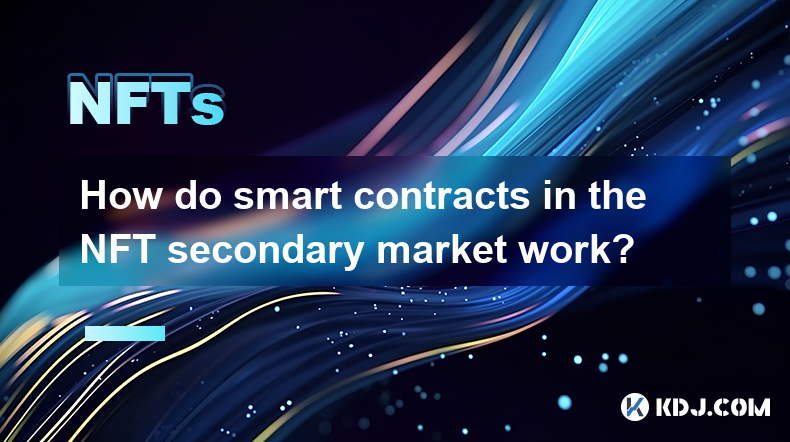
How do smart contracts in the NFT secondary market work?
Apr 03,2025 at 07:14am
Smart contracts play a pivotal role in the NFT secondary market, facilitating seamless transactions and enforcing predefined rules. These self-executing contracts with the terms of the agreement directly written into code are stored on the blockchain. In the context of NFTs, smart contracts automate the buying, selling, and transferring of digital asset...
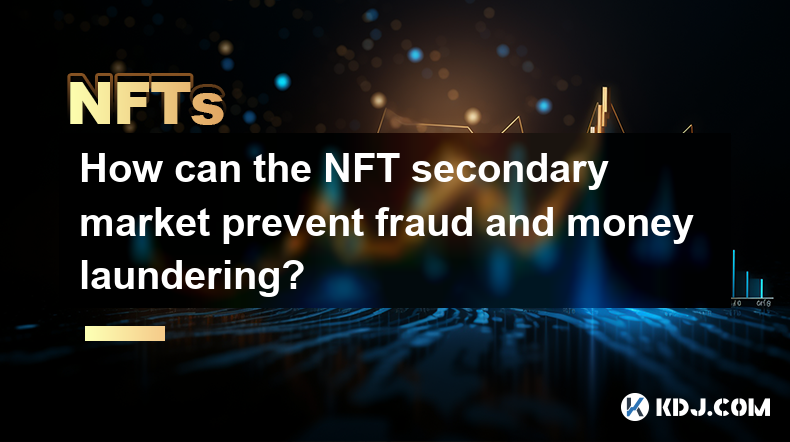
How can the NFT secondary market prevent fraud and money laundering?
Apr 03,2025 at 08:35am
The NFT secondary market has become a thriving hub for digital art and collectibles, but it also faces challenges in preventing fraud and money laundering. To tackle these issues, the market can implement various strategies and technologies to ensure a safer and more transparent trading environment. This article will explore how the NFT secondary market...
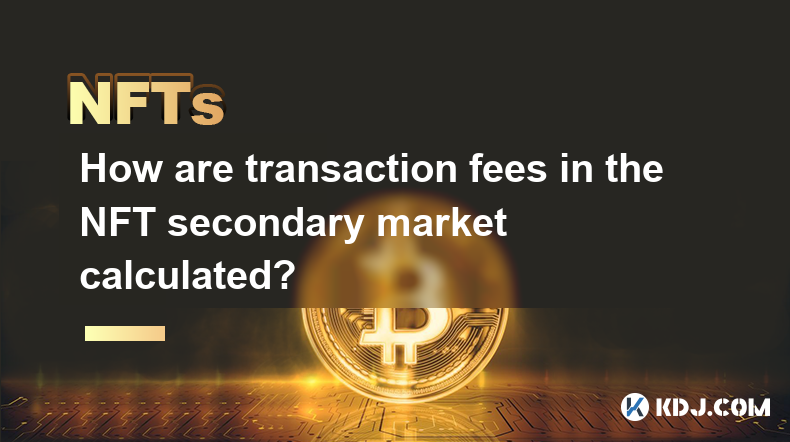
How are transaction fees in the NFT secondary market calculated?
Apr 04,2025 at 05:28am
The calculation of transaction fees in the NFT secondary market is a crucial aspect that both buyers and sellers need to understand. These fees can significantly impact the overall cost of transactions and the profits that sellers can make. In this article, we will delve into the various components that make up these fees, how they are calculated, and w...
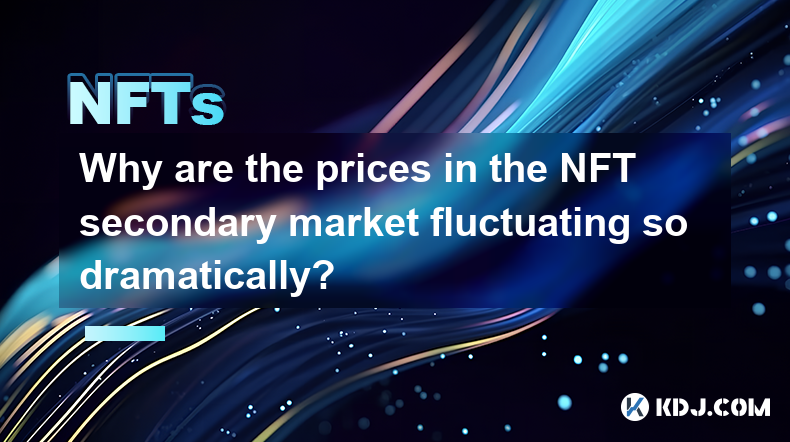
Why are the prices in the NFT secondary market fluctuating so dramatically?
Apr 03,2025 at 10:35pm
The NFT secondary market has been experiencing dramatic price fluctuations, leaving many in the cryptocurrency community puzzled and curious. To understand this phenomenon, it's essential to delve into the factors driving these price movements. From the impact of market sentiment and celebrity endorsements to the role of speculation and the unique natur...
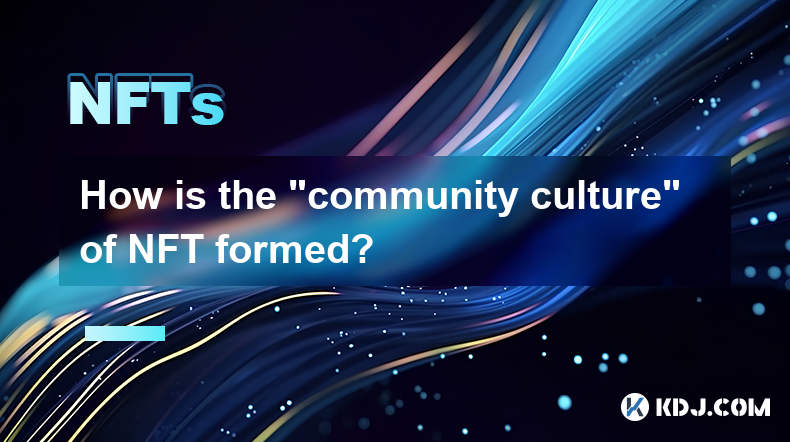
How is the “community culture” of NFT formed?
Apr 03,2025 at 11:07am
The formation of the 'community culture' within the NFT (Non-Fungible Token) space is a fascinating and multi-faceted process. It involves various elements such as shared interests, active engagement, and the creation of a sense of belonging among members. NFT communities often revolve around specific projects or artists, fostering a unique environment ...
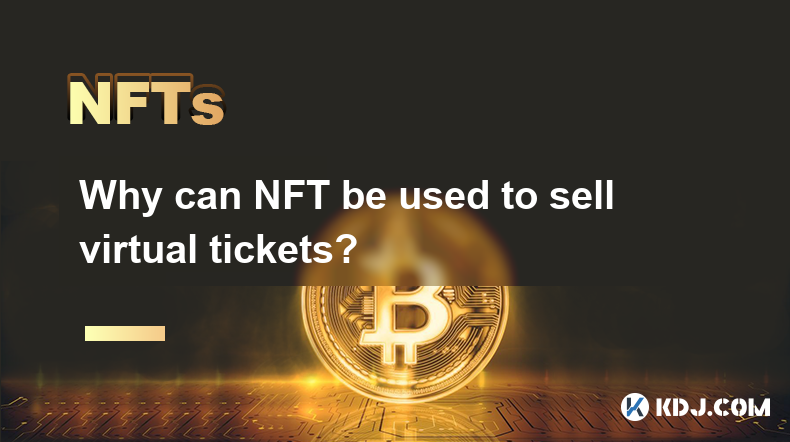
Why can NFT be used to sell virtual tickets?
Apr 03,2025 at 01:35pm
NFTs, or Non-Fungible Tokens, have revolutionized the way we think about digital ownership and value, particularly in the realm of virtual tickets. The primary reason NFTs can be used to sell virtual tickets is their unique nature. Unlike cryptocurrencies such as Bitcoin or Ethereum, which are fungible and can be exchanged on a one-to-one basis, NFTs ar...

How do smart contracts in the NFT secondary market work?
Apr 03,2025 at 07:14am
Smart contracts play a pivotal role in the NFT secondary market, facilitating seamless transactions and enforcing predefined rules. These self-executing contracts with the terms of the agreement directly written into code are stored on the blockchain. In the context of NFTs, smart contracts automate the buying, selling, and transferring of digital asset...

How can the NFT secondary market prevent fraud and money laundering?
Apr 03,2025 at 08:35am
The NFT secondary market has become a thriving hub for digital art and collectibles, but it also faces challenges in preventing fraud and money laundering. To tackle these issues, the market can implement various strategies and technologies to ensure a safer and more transparent trading environment. This article will explore how the NFT secondary market...

How are transaction fees in the NFT secondary market calculated?
Apr 04,2025 at 05:28am
The calculation of transaction fees in the NFT secondary market is a crucial aspect that both buyers and sellers need to understand. These fees can significantly impact the overall cost of transactions and the profits that sellers can make. In this article, we will delve into the various components that make up these fees, how they are calculated, and w...

Why are the prices in the NFT secondary market fluctuating so dramatically?
Apr 03,2025 at 10:35pm
The NFT secondary market has been experiencing dramatic price fluctuations, leaving many in the cryptocurrency community puzzled and curious. To understand this phenomenon, it's essential to delve into the factors driving these price movements. From the impact of market sentiment and celebrity endorsements to the role of speculation and the unique natur...

How is the “community culture” of NFT formed?
Apr 03,2025 at 11:07am
The formation of the 'community culture' within the NFT (Non-Fungible Token) space is a fascinating and multi-faceted process. It involves various elements such as shared interests, active engagement, and the creation of a sense of belonging among members. NFT communities often revolve around specific projects or artists, fostering a unique environment ...

Why can NFT be used to sell virtual tickets?
Apr 03,2025 at 01:35pm
NFTs, or Non-Fungible Tokens, have revolutionized the way we think about digital ownership and value, particularly in the realm of virtual tickets. The primary reason NFTs can be used to sell virtual tickets is their unique nature. Unlike cryptocurrencies such as Bitcoin or Ethereum, which are fungible and can be exchanged on a one-to-one basis, NFTs ar...
See all articles





















































































